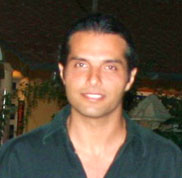The puzzle of the Iranian economy
In a recent gathering of the manufacturers of equipment for the energy sector, the New Iranian Oil Minister Rostam Ghasemi, a former commander of the Revolutionary Guard (RG) business arm Khatam Garrison, declared his deep concern about the lack of progress in this crucial industry. He announced that, “even if we were to sell the carpet upon which we are standing to raise money, it is well worth the decision to bring up the productivity of the oil and gas fields to the level at which we see their true potential output.” The solution was to facilitate a substantial increase in the share of RG entities in all key sectors in the economy.
Ironically, it has been mainly the activities of the Khatam Garrison that have contributed most to the creation of the debilitating new bottlenecks suffocating this industry. The mass takeover of the Iranian economy by the RG is a relatively recent phenomenon. Even though the RG had entered the economy during the war with Iraq, their presence in the highly knowledge-based sector of the Iranian economy had been mostly at the margins and the distribution side of the key sectors in the economy.
However, the arrival of Mr Ahmadinejad saw a fundamental shift in the parameters under which the RG had been allowed to operate. In a move that now can be better understood as a collaborative takeover of the strategic segments of the economy, Mr Khamenei approved and encouraged the rapid expansion of the activities in which the RG and its business apparatus moved from the periphery to the core. In the case of oil and gas, the RG actually became the single most important entity actor. The orchestrated takeover of the economy seems to have been intended to achieve a number of objectives:
• To circumvent the progressively tightening net of sanctions. At this level, the RG takeover was claimed to have reduced the ability of sanction supporters to monitor and reduce the flow of capital and technology into the economy, especially to the energy sector. This policy has backfired since the increased role of RG businesses in the energy sector has magnified the effectiveness of sanctions. The RG businesses were named in the U.S., EU and UN sanctions lists. More than 6.3 billion dollars of foreign investment by were called off because they involved collaboration with existing RG projects, which may have reduced the ability of Iran to export oil by close to one million barrels a day. At a market price of $85 per barrel, this means a fall of $31 billion per annum equivalent to 30% of the existing oil revenue.
• The mass entry of the RG into the economy was also meant to improve efficiency in the system by shortcutting red tape and circumventing market prices. In this area, the policy has failed to deliver. For example, in the Yadavaran energy field, the consequent exit of private sector firms and the takeover of their projects by the RG businesses has shown very little promise of completion despite the fact that government has injected more funds than originally allocated to the projects.
• Finally the expansion of RG activities in the economy was seen by some as a means of justifying the size of the RG and the share of oil income it has absorbed over the last 10 years. However, the rapid commercialization of the RG and the unhealthy mixture of their military/security power with semi-monopoly control over foreign trade have created a super-cartel causing many new problems rather than solving the existing ones.
The net result of the mismanagement of the economy, along with the expansion and cartelisation of RG commercial activities, has led to a situation in which, in all key economic indicators, Iran has fallen behind all its neighbours barring those in conflict. This has occurred despite having the second largest natural gas reserves in the world, the fourth largest oil reserves in 2009 and one of the best-educated labour forces in the region. The puzzle facing the Iranian economy is that despite having all the raw ingredients for rapid economic development and industrialization, there has been a gradual but very clear downward spiral in industrialization and technological growth. It seems that the more the RGs businesses are pushed to the forefront of the economy, the greater the decline in key economic indicators and social wellbeing. Perhaps the first step in resolving some of the key obstacles associated with sanctions should have been to return the RG to their defence duties and leave the economy to the traditional mixture of private and public sector organisations. This would open the foreign trade and energy sectors to both domestic and foreign firms. It is another puzzle why this has not happened.








1 Comments
Post new comment